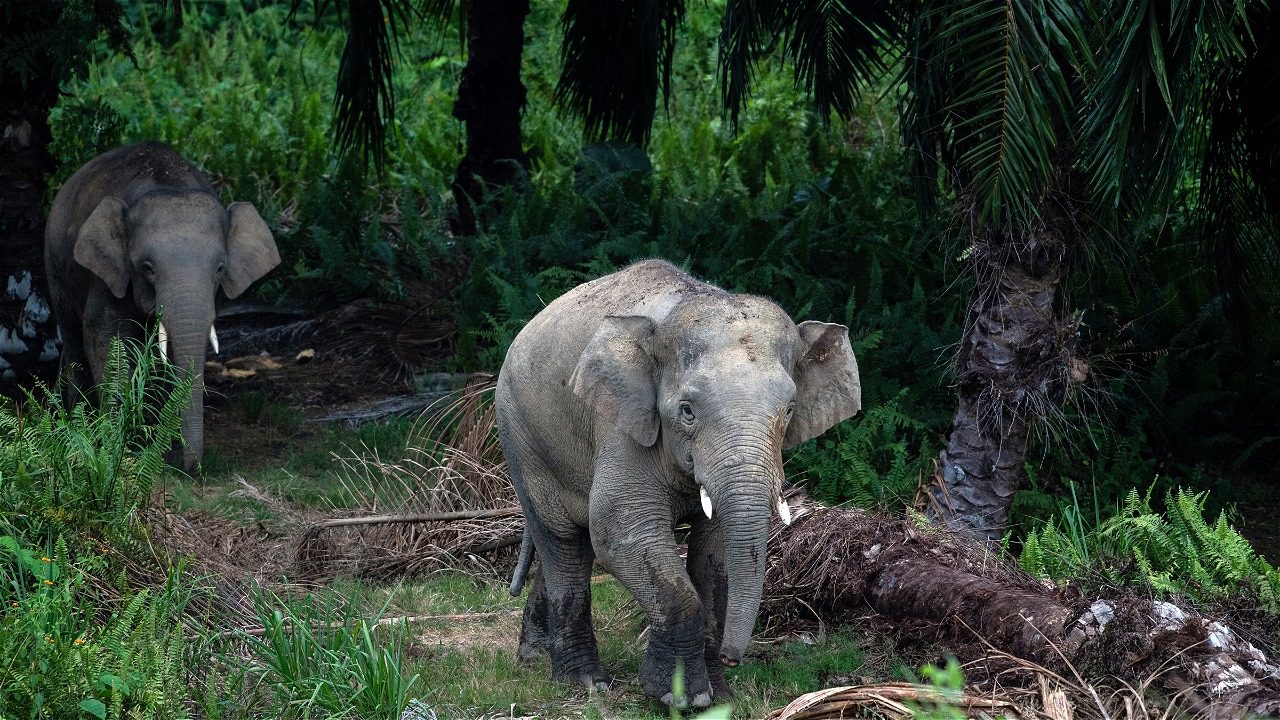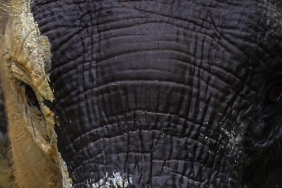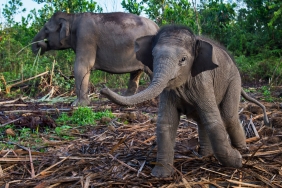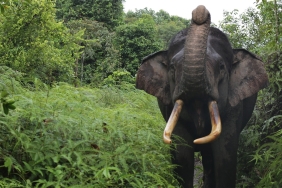BORNEAN ELEPHANT CONSERVATION THROUGH DEDICATED CORRIDORS IN THE NORTHERN HEART OF BORNEO
By: Agus Suyitno
Human-Elephant Conflict Mitigation Officer North Kalimantan, WWF Indonesia
Editor: Regina Nikijuluw
WWF HoB Communications Manager
The morning has just begun, and the sun is slowly coming out to do its job. I have my backpack slung over my back and my shoes on. I stepped lightly into the dining room to recharge my batteries for today's activities. There, 8 people have gathered to later together make a long journey to explore the area owned by companies in Sabah, Malaysia, namely Zillion Fortune Sdn Bhd and Sabah Softwood Berhard.
Over the next 2 days, I accompanied 1 person from the Government of Indonesia, 3 from the Provincial Government of North Kalimantan (Kaltara), including 8 people from WWF-Indonesia and WWF-Malaysia into the habitat of Borneo elephants. This visit follows the Sabah Government's visit to the elephant habitat in Tulin Onsoi District, Nunukan Regency, Kaltara in February 2018.
Bornean elephants are listed as endangered on the IUCN Red List. So far based on information from the Sabah Government, the elephant population there is around 1,500 individuals, while according to a survey conducted by WWF-Indonesia in 2012, the population in Kaltara is around 30-80 individuals.
Many activities and decisions have a direct impact on the existence of elephant populations. Habitat conversion for the development of oil palm plantations and industrial timber estates is a major issue that has led to habitat loss for Bornean elephants, both in Sabah and Kalimantan. Habitat conversion also leads to conflicts between elephants and humans due to the shared use of space.
During this 2-day trip, the government representatives and I learned a lot. Some adaptation and mitigation measures were taken by those whose areas we visited. The most interesting part of the trip was the dedication of the company to provide a special corridor for elephants in their area.
Zillion Fortune, an industrial timber plantation company, was licensed in 2014 for 100 years with an area of 10,833 hectares in the Sepulut FMU 25 area. The presence of elephants is also a major issue in which they must be involved in conservation efforts.
At the bottom of their concession which borders Nunukan, Kaltara, the Sabah government has created a 500 meter wide buffer corridor. In addition, Zillion Fortune provides 1,692 hectares to become a corridor for elephant movement in Sabah and Kalimantan. This is so that the elephants there have their own movement areas without the need to enter the area where people live.< br />
We visited the territory of another company, Sabah Softwoods Berhard, and had the opportunity to see elephants in person, about 20-25 individuals. Elephant encounters were found in and around the corridor. Elephant and human interaction is common in the area.
Allowing the elephants to remain within their concession is unique. The company has reserved a conservation area for elephants through a 1,228 Ha elephant corridor that connects their movements to the forest area.
Furthermore, conflict management by Sabah Softwoods Berhard is done through food provision. If 1 individual elephant needs 150 kg of food a day, then the company has thought of providing 750 kg - 900 kg of food in this region. Even in some places plant enrichment has been done to maintain the availability of elephant food.
Sabah Softwoods Berhard is a company that has a business license in the development of industrial forest plantations and oil palm plantations under the Sabah Foundation for 60 years since 1997 with an area of 60,700 Ha. The division of the area for the business license includes 26,998 Ha for industrial plantation forest activities, 28,489 for oil palm plantations and 5,213 for conservation areas.
Although the intensity of elephant conflicts is still low, anticipatory measures are taken by both companies through the installation of electric fences in newly planted areas. Regular monitoring and patrols are conducted by both companies to prevent elephants from entering planted areas. Crops eaten or destroyed by elephants are a risk to them and will usually be tried to be replanted.
They realize that elephants need space to move and also need food sources. They also understand that elephants can come into conflict with humans. Creating corridors and providing forest areas are important for elephants. Currently the total number of wild elephants in their concession is 50-60 individuals, and they continue to manage the elephants to reduce the risk of extinction.
Jufri, a staff member of the Kaltara Regional Development Planning Agency, said, "I am very grateful and happy to be involved in this visit, especially to meet the elephants directly." Elephant sightings in the Nunukan region are rare because the population is small and the habitat is quite large.
"The lesson learned is that humans can actually coexist with elephants. Human business activities in forestry and plantations can be carried out, while space for elephants is provided," Jufri continued his statement.
The Kaltara government will certainly be committed to protecting and preserving Bornean elephants. The HoB program will be a bridge in building cross-border cooperation in corridor management in Sabah and Kalimantan.
This 2-day trip was indeed tiring for me. However, the satisfaction I saw from all the participants, as well as the learning I got was not worth the fatigue. The sight of elephants crossing the corridor provided brought me great joy. This effort may be simple, but it can help preserve the endangered Bornean elephant.





